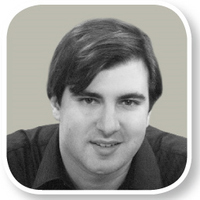






What Did I Miss?by Matt Matros | Published: Jan 22, 2014 |
|
|

Matt Matros
Knowing I’d find a way to make peace with this year’s main event, I began to look forward to the rest of my life. I’d been planning for a while to take a significant break from tournaments. Indeed, I had already taken a long break at another point of my career. Loyal readers with good memories will recall that I spent most of 2009 working on my writing, making a short film, and getting married. I played very few events that year, but I returned rejuvenated, focused and hungry, and had a lot of success in 2010 and beyond.
Breaks are crucial to one’s mental health, and the ability to create my own work schedule had also been one of the most appealing aspects of professional poker for me. Furthermore, I was more than capable of enjoying the game without playing it. What I liked about poker was the strategy, the intellectual challenge, the puzzle solving. I didn’t enjoy working 12-hour days only to lose money 85 percent of the time — or rather, I had enjoyed this for the first six or seven years of my career, but I eventually got tired. I was ready to continue on with the elements of poker I liked — through coaching, through talking poker with other good players, and through this column — and to discontinue the day-to-day grind of poker tournaments. I’d have more time to focus on my writing, see my family, and maybe even learn another skill like programming or photography. It seemed like the perfect plan.
But a funny thing happened as I spent the fall polishing up my novel, sending it out to agents, and then starting a new writing project. I missed playing poker. How could this onset of nostalgia have come so quickly? I hadn’t exactly forgotten the grueling days at the tables, the near misses after building big stacks, or the tough competition that had made poker so much harder in recent days. Besides, I was coming off my first losing summer since 2009 (when I only played eight events and lost $1,938). Why did I feel the urge to play again?
It started when my friend Vanessa Selbst made her fourth-biggest score ever at the Borgata Poker Open — an event I’d played almost every year, but skipped this time. As happy as I was for Vanessa, part of me wished I’d been there competing alongside her, maybe even joining her at the final table. And then came the November Nine. What poker player can watch the televised coverage of the main event final table and not feel the allure of the felt? I may not enjoy the endless hours anymore, but I’m not a monster.
Finally, I’d been ramping up my coaching schedule since the Series, and I often found myself repeating the phrase, “it depends on your read.” For a math guy, I make a lot of reads, and I rely a lot more on my instincts at the poker table than many people might expect. I started to miss using those instincts. I missed making reads and being right to win a big pot. I even missed being wrong about reads and looking like a fool. I missed assessing my opponent’s ranges, and building a good range to counter them, and making adjustments based on the history of the table. There was no getting around it — I missed playing poker.
By the time I realized all this December had arrived, and with it came the Harrah’s Atlantic City WSOP Circuit event. That’s the beauty of poker — no matter how long you’re away, there’s always a tournament to come back to. The Harrah’s event featured an eight-hour Day One, a long but reasonable Day Two, and a Day Three that started with the final table. There was enough play so that it wasn’t a crapshoot, but it was fast enough so that I wouldn’t waste a week and not cash. It seemed like the perfect structure to ease myself back into the grind.
Although I approached the Harrah’s event with as positive an outlook as I can ever remember bringing to a tournament, I can’t claim that my sunny disposition had anything to do with my reaching Day Two with a top-ten chip stack. At least half of that stack came my way after opponents had done ridiculous things with their chips: jamming for eight times the pot with a flush draw, calling off 20 blinds with 10-7 suited, etcetera. My Day One experience reminded me of another good reason to play poker — it’s not such a bad investment after all.
Day Two proved to be the opposite of Day One as far as my good fortune was concerned. I got it in preflop with A-2 against 8-7 suited, A-Q against K-Q, and 10-8 suited against A-K offsuit and lost all three showdowns. I also flopped top pair against better top pairs twice, losing medium pots both times. The highlight of the day came when I value bet three streets with A-J on an ace-high board, and ended up chopping. Yup, getting my money back at the end of a pot was the highlight. So I didn’t cash at Harrah’s, but I felt great satisfaction just to be out there competing again. Maybe I even learned something about myself. Maybe I have a new plan for my career going forward. Maybe, just maybe, I should only play poker when I’m having fun and excited about playing. If that’s the lesson I’ve learned from this latest, albeit abbreviated, break from poker, then I’ll consider that break as time well spent. ♠
Matt Matros is the author of The Making of a Poker Player, and a three-time WSOP bracelet winner. He is also a featured coach for cardrunners.com.
Features
The Inside Straight
Strategies & Analysis
Commentaries & Personalities